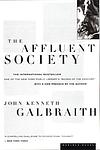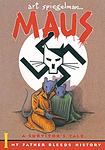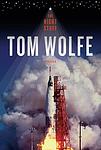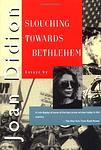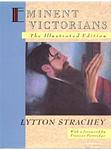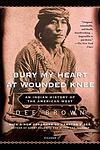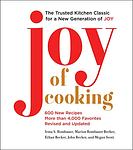The Greatest "Nonfiction" Books Since 1900
Click to learn how this list is calculated.
This list represents a comprehensive and trusted collection of the greatest books. Developed through a specialized algorithm, it brings together 288 'best of' book lists to form a definitive guide to the world's most acclaimed books. For those interested in how these books are chosen, additional details can be found on the rankings page.
Genres
Countries
Date Range
Reading Statistics
Click the button below to see how many of these books you've read!
Download
If you're interested in downloading this list as a CSV file for use in a spreadsheet application, you can easily do so by clicking the button below. Please note that to ensure a manageable file size and faster download, the CSV will include details for only the first 500 books.
Download-
26. The Affluent Society by John Kenneth Galbraith
"The Affluent Society" is a socio-economic critique that challenges the conventional wisdom of the time that economic growth leads to public wealth. The author argues that in reality, the increasing wealth of the United States has led to greater private affluence but public squalor due to inadequate investment in public goods and services. He proposes that society should strive for sustainable development rather than unlimited material advancement. The book has been influential in economic thought, particularly in the areas of public policy and consumer behavior.
-
27. The Education of Henry Adams by Henry Adams
"The Education of Henry Adams" is an autobiographical account that explores the changes in society and politics during the 19th and 20th century from the perspective of an individual who is both a product and critic of that era. The narrative is structured around the author's self-perceived failure to understand or adapt to these changes, despite his privileged education and social status. The book is a reflection on the author's life, his attempts to make sense of the world around him, and his struggle to reconcile his traditional upbringing with the rapid advancements of the modern world.
-
28. The Autobiography of Alice B. Toklas by Gertrude Stein
This book is an innovative and unconventional autobiography, penned from the perspective of the author's life partner, providing an intimate view into the lives of the Parisian avant-garde in the early 20th century. It offers a personal account of their life together, filled with anecdotes of their interactions with famous figures such as Picasso, Matisse, and Hemingway. The narrative also delves into the author's own thoughts and experiences, creating a unique blend of biography, autobiography, and personal memoir.
-
29. Black Lamb and Grey Falcon by Rebecca West
"Black Lamb and Grey Falcon" is a comprehensive and detailed travelogue of Yugoslavia, penned by a British author during the brink of World War II. The book beautifully interweaves history, politics, culture, and personal experiences to paint a vivid picture of the Balkan region. It also serves as a profound reflection on the impending war and the author's concerns about the rise of fascism in Europe, making it not just a travel book but also an essential historical document.
-
30. Maus by Art Spiegelman
This graphic novel tells the story of a Holocaust survivor, as narrated by his son. The unique use of animals to represent different nationalities and ethnic groups adds a distinctive layer to the narrative. The protagonist's father recounts his experiences as a Polish Jew during World War II, offering a poignant depiction of the horrors of the Holocaust. The narrative also explores the complex father-son relationship, revealing the impact of such traumatic historical events on subsequent generations.
-
31. The Varieties of Religious Experience by William James
This book is an exploration of the diverse range of religious experiences, from the mainstream to the mystical. The author applies a psychological and philosophical approach, examining the individual, personal experiences of spirituality rather than organized religion. The book covers topics such as conversion, saintliness, and mysticism, and argues that religious experiences, rather than religious institutions, should be the primary focus of religious study.
-
32. The Right Stuff by Tom Wolfe
"The Right Stuff" is a non-fiction novel that explores the lives and experiences of the first Project Mercury astronauts selected for the NASA space program in the 1960s. The book delves into the personal and professional lives of these astronauts, highlighting their courage, competitiveness, and the immense pressure they faced. It also provides a detailed account of the space race between the United States and the Soviet Union during the Cold War era.
-
33. Philosophical Investigations by Ludwig Wittgenstein
This book is a seminal work in 20th-century philosophy, presenting a detailed critique of the notion that our language directly corresponds to reality. The author argues that the meaning of words is not inherent, but rather derives from their use within specific forms of life. The book also introduces the concept of language games, suggesting that our understanding of language is akin to learning the rules of a game. The author further explores the limits of language, the nature of understanding, and the relationship between public and private language.
-
34. Dispatches by Michael Herr
This book is a first-hand account of the Vietnam War from a war correspondent's perspective. The author vividly describes the chaos, violence, and absurdity of the war, providing a raw and unfiltered look at the experiences of soldiers on the ground. The narrative is filled with gritty details and intense imagery, capturing the fear, boredom, and disillusionment that characterized the war. The book is considered a classic of war reportage, lauded for its honest and brutal portrayal of the realities of combat.
-
35. The Souls of Black Folk by W. E. B. Du Bois
This seminal work is a collection of essays that explores the history and condition of African Americans at the turn of the 20th century. It delves into the issues of race, class, and the socio-economic realities faced by black people post-emancipation. The author employs a combination of history, sociology, and personal narrative to present a powerful critique of American society, highlighting the struggle for civil rights, the importance of black spirituals, and the concept of "double consciousness" - the idea of viewing oneself through the lens of a society that sees you as inferior.
-
36. Testament Of Youth by Vera Brittain
Testament of Youth is a poignant memoir detailing the author's experiences during World War I. The narrative follows her journey from her early life, her time as a Voluntary Aid Detachment nurse serving in London, Malta, and France, and her later years as a writer and pacifist. The author's personal loss, including the death of her fiancé and her brother, and the impact of the war on her generation, is a central theme, offering a unique female perspective on the devastating effects of war.
-
37. Slouching Towards Bethlehem by Joan Didion
This book is a collection of essays that capture the essence of the 1960s in California. It portrays a society in the midst of social and cultural upheaval, as traditional norms are challenged by the counterculture movement. The author explores various themes including morality, self-respect, and the nature of good and evil, while providing a vivid picture of the era through her insightful and incisive observations.
-
38. The Second World War by Winston Churchill
This book provides a comprehensive overview of the Second World War from the perspective of one of its most influential leaders. It covers the entire span of the war, from its origins in the political and economic turmoil of the 1930s, to the major battles and strategic decisions that shaped its course, to its aftermath and impact on the world. The author's unique perspective and firsthand experience, combined with his eloquent and insightful writing, make this a definitive account of one of the most important events in modern history.
-
39. The Selfish Gene by Richard Dawkins
This groundbreaking book presents a revolutionary perspective on the theory of natural selection. The author argues that genes, rather than individuals or species, are the true units of evolution. He suggests that these 'selfish' genes are driven by their own survival, leading to complex behaviors and characteristics in the organisms they inhabit. This work reframes our understanding of evolution, emphasizing the gene's role in shaping biological life and behavior.
-
40. Man's Search for Meaning by Victor Frankl
This book is a memoir written by a psychiatrist who survived the Nazi concentration camps during World War II. The author shares his experiences in the camps and his psychological approach to surviving and finding meaning amidst extreme suffering. He introduces his theory of logotherapy, which suggests that life's primary motivational force is the search for meaning, and argues that even in the most absurd, painful, and dehumanized situation, life can be given meaning.
-
41. Tractatus Logico-Philosophicus by Ludwig Wittgenstein
"Tractatus Logico-Philosophicus" is a seminal work in analytic philosophy that presents a comprehensive picture of reality and our knowledge of it. The book outlines a logical structure for all scientific discourse, arguing that language and its logical structure are the primary tools for understanding and representing the world. It proposes that all philosophical problems arise from misunderstandings of the logic of language, and that all meaningful propositions are pictures of states of affairs in the world. The book concludes with the famous line "Whereof one cannot speak, thereof one must be silent," suggesting that things that cannot be spoken about logically should not be spoken about at all.
-
42. Moveable Feast by Ernest Hemingway
This memoir offers a glimpse into the life of a young American writer living in Paris during the 1920s. The book is filled with personal anecdotes and observations about his life and experiences, including his relationships with other expatriate writers and artists of the Lost Generation. The focus is on the joy of life, the art of writing, and the struggle of a writer. The book also explores the author's love for the city of Paris, which he refers to as a "moveable feast".
-
43. The Origins of Totalitarianism by Hannah Arendt
The book explores the roots of totalitarian systems, particularly focusing on Nazi Germany and Stalinist Russia. It delves into the historical, social, and political circumstances that led to the rise of these oppressive regimes, including anti-Semitism, imperialism, and the decline of the nation-state. The author further discusses the nature of power, the role of propaganda, and the manipulation of the masses in these systems, providing a comprehensive analysis of totalitarianism.
-
44. Pragmatism by William James
The book in question is a seminal work in the philosophical tradition of pragmatism, which argues that the truth of ideas is measured not by their correspondence to an objective reality, but by their practical effects and utility. The author challenges the notion of fixed, absolute truths, proposing instead that beliefs should be seen as tools for action and that their validity depends on their success in solving problems and guiding experiences. Through a series of lectures, the text explores the implications of this philosophy for various fields, including religion, metaphysics, and science, ultimately advocating for a more flexible, open-ended approach to thinking and a tolerance for diverse perspectives in the pursuit of knowledge and understanding.
-
45. All the President's Men by Bob Woodward, Carl Bernstein
"All the President's Men" is a non-fiction book that details the investigative journalism conducted by two reporters who uncover the details of the Watergate scandal that led to President Nixon's resignation. The book provides a detailed account of the reporters' struggles to uncover the truth, the obstacles they faced, their persistence, and the ultimate revelation of a political scandal that shook the United States.
-
46. Eminent Victorians by Lytton Strachey
"Eminent Victorians" is a biographical work that profiles four influential figures from the Victorian era. The book provides an in-depth look into the lives of Cardinal Manning, Florence Nightingale, Thomas Arnold, and General Gordon, exploring their respective contributions to British society during the 19th century. Through these portraits, the book offers a critical and often satirical analysis of Victorian values, institutions, and moral attitudes, challenging the idealized narrative of the era.
-
47. The Woman Warrior: Memoirs of a Girlhood Among Ghosts by Maxine Hong Kingston
This memoir explores the life of a first-generation Chinese-American woman, navigating the complexities of her dual heritage. Through five interconnected stories, the book delves into the author's childhood experiences, her mother's tales of old China, and the struggles of reconciling these two worlds. The memoir is a blend of reality and mythology, illustrating the author's struggle with her identity, the expectations of her traditional Chinese family, and the challenges of growing up in a predominantly white American society.
-
48. Bury My Heart at Wounded Knee by Dee Alexander Brown
This book is a compelling historical narrative that chronicles the systematic decimation of Native American tribes in the United States during the late 19th century. The author uses council records, autobiographies, and firsthand descriptions to provide a detailed account of the battles, massacres, and broken treaties that led to the destruction of the Native American way of life. The book centers on significant events such as the Battle of Little Bighorn and the Wounded Knee Massacre, offering a voice to the often overlooked Native American perspective.
-
49. The Joy of Cooking by Irma S. Rombauer, Marion Rombauer Becker, Ethan Becker
This book is a comprehensive guide to home cooking, providing readers with a wide range of recipes, techniques, and advice for all kinds of dishes. It covers everything from appetizers to desserts, with clear instructions and illustrations to make the process easy and enjoyable. The book also includes helpful tips on meal planning, food safety, and nutrition, making it a valuable resource for both beginners and experienced cooks.
-
50. Good-Bye to All That by Robert Graves
This memoir provides a candid and unflinching look at the horrors of World War I, as experienced by a young British officer. The narrative explores the brutality and futility of war, the author's struggle with shell shock, his disillusionment with the military and British society, and his decision to leave England for a new life abroad. It also offers insights into the author's personal life, including his troubled marriage and his relationships with other prominent figures of the time.
Reading Statistics
Click the button below to see how many of these books you've read!
Download
If you're interested in downloading this list as a CSV file for use in a spreadsheet application, you can easily do so by clicking the button below. Please note that to ensure a manageable file size and faster download, the CSV will include details for only the first 500 books.
Download